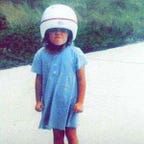Can a Cocktail Help With Creativity?
A drink can help you achieve the unfocused and non-critical writing that may be the key to creative success.
“Write drunk, edit sober” has been one of my mottos since the early days as a university student. Long, excruciating history essays were much easier with a bottle of wine and the supposed words of Ernest Hemingway encouraging me to have another glass.
Hemingway, F. Scott Fitzgerald, Edgar Allen Poe, and many of the greats were known for finding the bottom of the bottle a little too often. But let’s not pretend that alcohol is the primary source of great literary works such as Huckleberry Finn, The Great Gatsby, or The Raven. In fact, there is evidence to show that some of these works were created while sober, not drunk.
But Hemingway might have been on to something.
Sian Beilock, president of Barnard College and author of “Choke: What the Secrets of the Brain Reveal About Getting It Right When You Have To,” in 2012 wrote that alcohol reduces people’s ability to focus in on some things and ignore others, which can benefit creative problem-solving.
A sober mind can focus on a subject and really think about it, but an intoxicated mind tends to wander off in different directions. Which, again, is beneficial to creativity.
Beilock writes that “the more working memory people have at their disposal, the better they perform on all sorts of analytical tasks that pop up at school and at work. But, interestingly, wielding more working memory may hinder performance whenever thinking creatively or ‘outside the box’ is necessary. Simply put, people’s ability to think about information in new and unusual ways can actually be hampered when they wield too much brain power.”
This conclusion echoes research by other academics. Harvard professor and neurologist, Alice Flaherty, had done research on writers and writer’s block. She told Public Radio International that alcohol inhibits brain activity, which may not help creativity per se, but could help eliminate judgment.
“It reminds me a little of William Stafford, who said that all you have to do to get rid of writer’s block is just lower your standards,” Flaherty told PRI.
The idea of eliminating judgment is key, it’s like beer goggles for creatives. We do much better creatively when we aren’t paying full attention to the decisions we are making.
Another great example comes from a 2014 TED Talk titled ‘Your Brain on Improv’. During his talk, Charles Limn speaks about his research in exploring where in the brain creativity comes from. He monitored brain activity as a musician was playing and found that when the musician improvised, the prefrontal cortex of the brain was suppressed in a big way. This part of the brain, he says, is what he thinks is linked to conscious self-monitoring.
Here’s a piece from his talk:
“We think that at least a reasonable hypothesis is that to be creative you have to have this weird dissociation in your frontal lobe. One area turns on and a big area shuts off so that you’re not inhibited so that you’re willing to make a mistake, so that you’re not constantly shutting down all of these new generative impulses. For example, right now I want to make sure I’m not saying something too stupid and so that part of my brain is kind of actively filtering what’s coming out of my mouth.”
The brain is basically saying don’t be creative and don’t make any mistakes. To be creative, we have to shut this part down. He notes that artists have been actively trying to tap into creativity for decades using drugs, alcohol, and sometimes safer methods such as exercise or meditation.
I’m not saying go on a drinking binge and then start writing. While a glass may help you rid that writer’s block, too much of the hard stuff will actually have a reverse effect. A study from the University of Graz in Austria found that modest amounts of alcohol have beneficial effects but excessive consumption impairs creative productivity.
And if you refrain from alcohol, another ‘creative hack’ with similar effects is switching up your writing routine for early mornings or late nights. Because, as we stated already, it’s not actually the drink that makes you a better writer rather, it’s the lack of brain power.
Mareike Wieth and Rose Zacks conducted an experiment involving undergraduate students and two types of problem-solving tests. One was analytical and the other required a narrow focus (simple problem-solving riddles). These were conducted in the morning and then again in the late afternoon. The results showed that students were much more successful at solving the insight-type problems, or the ones that required a bit of creativity, when the time of the testing conceded with their least optimal time of functioning. For example, if they were night owls they did better in the morning.
My day-to-day writing happens early in the morning, my least favorite time to be awake. But sometimes, I have a million notes and I just can’t finish a piece. I’m overthinking and being too judgmental of every word I type. I pour myself a glass of wine and sit in my pajamas. I don’t need anything to be perfect; I just need my thoughts, unjudged, written on a piece of paper. Later, I come back and make sure those words made sense and are spelled correctly.
Have a glass of wine (or maybe two) or wake up early in the morning. It might actually you finish that essay or book you’ve been grappling for too long — It certainly helped me finish this one.
